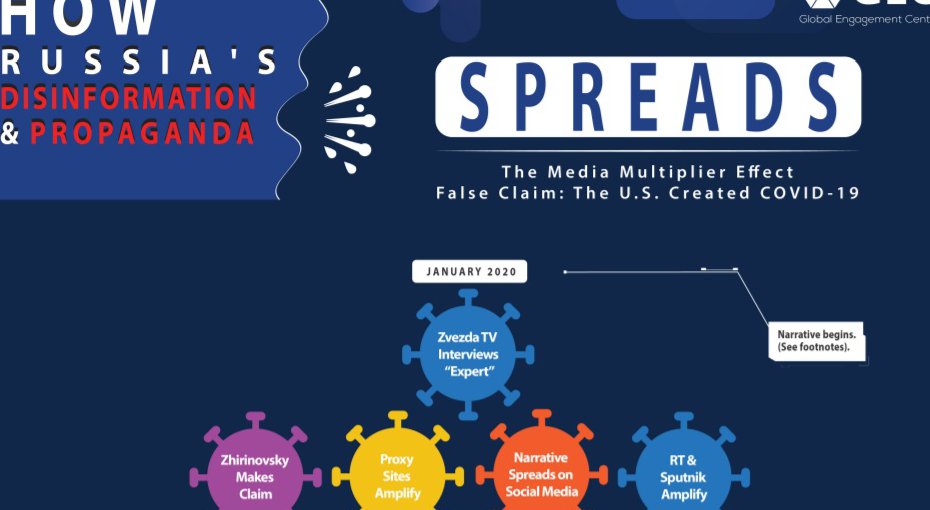 The Kremlin’s “ecosystem” approach is well-suited to reinforcing Russia’s general aims of questioning the value of democratic institutions, and of weakening the international credibility and international cohesion of the United States and its allies and partners, notes a new report from the Global Engagement Center on Pillars of Russia’s Disinformation and Propaganda Ecosystem.
The Kremlin’s “ecosystem” approach is well-suited to reinforcing Russia’s general aims of questioning the value of democratic institutions, and of weakening the international credibility and international cohesion of the United States and its allies and partners, notes a new report from the Global Engagement Center on Pillars of Russia’s Disinformation and Propaganda Ecosystem.
There are five pillars of Russia’s information war against the West, which work in a coordinated manner to create an avalanche effect in the media, the illusion of trust and a picture in the minds of ordinary people stating that “what is written by everyone is true,” the report states:
• official government resources of the Russian Federation (Kremlin, Foreign Ministry press services, government accounts in social networks);
• state funded international television and radio broadcasting (state media aimed at domestic and foreign audiences, as well as international socio-cultural institutions);
• development of proxy resources (language centers, dissemination of narrative information);
• use of social networks as a weapon;
• disinformation in cyberspace.
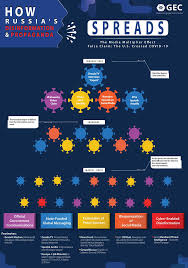 For example….
For example….
Geopolitica.ru serves as a platform for Russian ultra-nationalists to spread disinformation and propaganda targeting Western and other audiences. Inspired by the Eurasianist ideology of the Russian philosopher and Eurasian imperialist Alexander Dugin, Geopolitica.ru views itself as caught in a perpetual information war against the Western ideals of democracy and liberalism. The website’s cooperation with other outlets in Russia’s disinformation and propaganda ecosystem broadens the reach of its messaging, which seeks to destabilize and weaken Western institutions.
The Department of State’s new graphic (above) makes it easy to follow the pillars of the Russian disinformation and propaganda ecosystem, The Cipher Brief reports.
Liberal governments tend to view disinformation as an anomaly, notes H. Akin Unver (@AkinUnver), an associate professor of international relations at Kadir Has University and a nonresident fellow at Oxford University’s Center for Technology and Global Affairs.
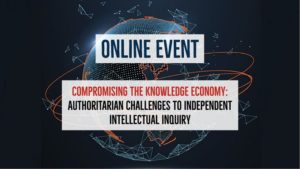 My research on disinformation dynamics finds a mismatch between the rapidly growing scholarship on disinformation and the even faster evolution in the dynamics of political manipulation. Much of the research in this field focuses on a very small group of Western liberal democracies — and the dynamics of target countries. But to understand disinformation from illiberal regimes, it is important to understand disinformation within illiberal regimes, he writes for the Post’s Monkey Cage blog.
My research on disinformation dynamics finds a mismatch between the rapidly growing scholarship on disinformation and the even faster evolution in the dynamics of political manipulation. Much of the research in this field focuses on a very small group of Western liberal democracies — and the dynamics of target countries. But to understand disinformation from illiberal regimes, it is important to understand disinformation within illiberal regimes, he writes for the Post’s Monkey Cage blog.
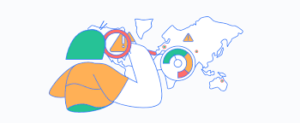
Digital Democracy Monitor Toolkit
Research findings suggest a different approach might prove more successful — if governments view disinformation as an ongoing part of the information ecosystem and build defenses accordingly, he adds:
- One option is a heavier emphasis on real-time, large-scale fact-checking and fact-dissemination systems to combat disinformation at scale.
- A second option would be to task government agencies with boosting and coordinating national efforts to battle disinformation during critical periods such as elections or natural disasters.
- And a third approach might include Finnish-style long-term data-literacy drives, aimed at slowly generating national immunity against disinformation over time.
Ultimately, treating disinformation as a norm, not an anomaly, may encourage defenses and resistance mechanisms to address the growing global problem of organized information manipulation, Unver contends. RTWT
The Digital Democracy Monitor Toolkit empowers researchers with the knowledge, tools and examples to analyse democratic discourse online, Dem-Dec reports. Prepared by Democracy Reporting International (DRI), it can be used to assemble a report on an election’s vulnerability to online disinformation.
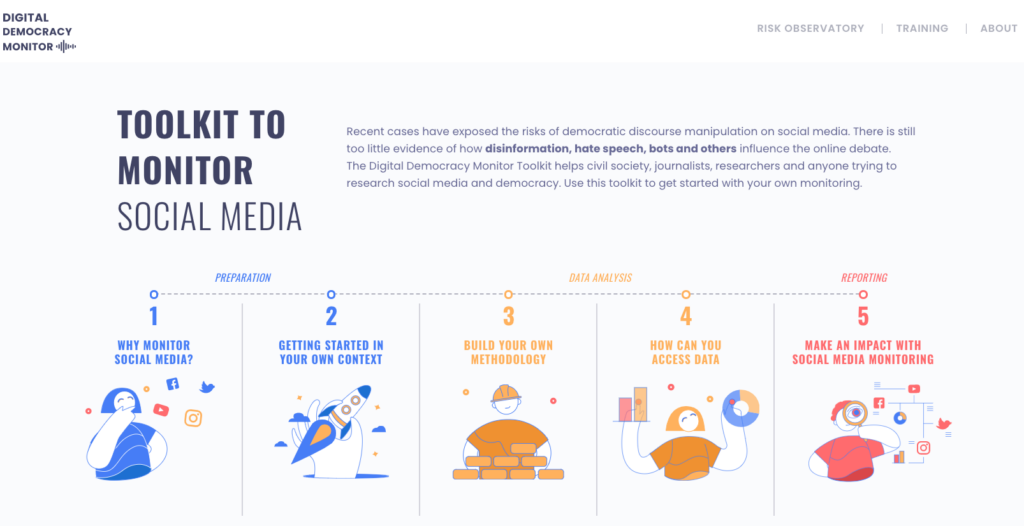
“China’s government is using the [COVID-19] crisis to its advantage—leveraging an increasingly outward-facing digital social media presence together with more traditional tools of information manipulation.” – @JessBrandt @SecureDemocracy https://t.co/TG5PaMKMv1
— Forum @ NED (@ThinkDemocracy) August 13, 2020







